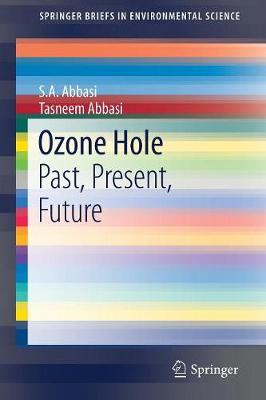SpringerBriefs in Environmental Science
1 primary work • 2 total works
Book 2
In recent years, the importance of biogas energy has risen manifold and has become universal. This is due to the realization that biogas capture and utilization has great potential in controlling global warming. By capturing biogas wherever it is formed, we not only tap a source of clean energy, but we also prevent the escape of methane to the atmosphere. Given that methane has 25 times greater global warming potential than CO2, methane capture through biogas energy in this manner can contribute substantially towards global warming control.
This book underscores the re-emergence of the ozone hole problem and deals with it in its current context of exacerbating global warming. It traces the history of the ozone hole from the stage of formation of the stratospheric ozone ‘layer’, millions of years ago, into the late 20th century when the anthropogenic destruction of that ozone was discovered. The chapters are written to bring the the reader up to the present day. Factors that influence stratospheric ozone are discussed and the ways to halt ozone depletion are cataloged.
And more complex interrelationships are being discovered between ozone depletion and two other global concerns: climate change and ocean acidification. This book sheds light on the intricacy of the situation and its portants.
The book will be useful to students and researchers looking for a current overview of the ozone hole problem.
And more complex interrelationships are being discovered between ozone depletion and two other global concerns: climate change and ocean acidification. This book sheds light on the intricacy of the situation and its portants.
The book will be useful to students and researchers looking for a current overview of the ozone hole problem.

